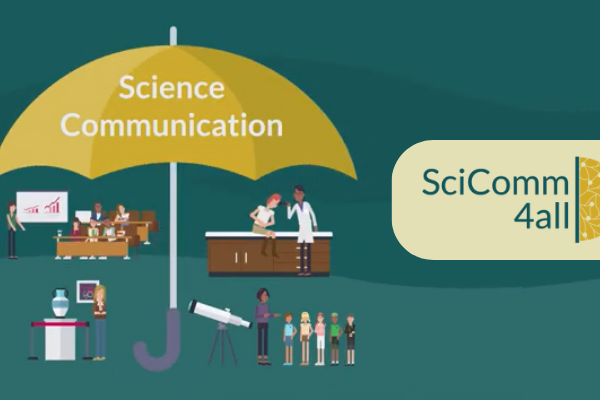An international team of researchers has created SciComm4all, a gap-filling science communication self-training material. The set of freely accessible animated videos offers tips and good practices for effective knowledge dissemination.

The aim of SciComm4all is to serve as a tool for researchers to communicate their scientific results credibly and effectively. The modules have been developed specifically for scientists who have doubts concerning how to communicate about their research topics and disseminate their results as widely as possible.
“It is vitally important for scientists to inform the public about their research activities. It matters considerably how they present their results when they wish to convince political decision-makers and potential funders about the significance of their work, and also when they try to present new discoveries to a wider public. Additionally, a lot depends on the way of presentation when they meet a prejudiced community with whom they try to engage in communication and convince them, if possible. General communication skills and personal motivation are not enough for success, you also need to be aware of the basic principles of science communication, and some of the ‘tricks of the trade’ may also come in handy.”
Máté Varga, associate professor at ELTE’s Institute of Biology, Department of Genetics
The training material consists of eleven animated video modules, each lasting approximately three minutes and containing additional resources such as scientific articles, blogs, and guidelines. The modules were created by researchers experienced in science communication: Héloïse Dufour and Fanny Bilak (Le Cercle FSER, France), Susana Ambrósio (University of Aveiro, Portugal), Lucia Martinelli (Museo delle scienze, Italy), and Máté Varga from CHARM-EU partner Eötvös Loránd University (Hungary).
The SciComm4all modules are specifically designed and developed for researchers. Scientists can learn how to distinguish between different target audiences and how to interact with them, how to replace jargon with everyday equivalents and maintain a balance between simplification and scientific accuracy. The issue of effectively conveying their message while remaining authentic and the skilful use of facts and emotions are also discussed along with the questions of how to tackle controversial issues and the uncertainties in science and finally, how to prepare for an interview.
The communication of scientific results is also essentially important for TORCH, CHARM-EU’s research and innovation dimension. TORCH not only focuses on transferring scientific knowledge from University to society, but also strives to involve societal partners through cooperation between academia and enterprises as well as to promote public engagement and citizen science.
The open access videos are available at www.scicomm4all.org, with subtitles in 15 languages. The modules were carried out in the framework of the EuroScitizens COST Action, their creation was supported by Horizon 2020, MUSE, and other cultural actors in Europe as well as universities including CHARM-EU partner ELTE.
Source: ELTE Institute of Biology